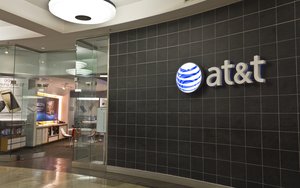Appeals Court To Decide Whether AT&T Will Face Class-Action Over Throttling
- by Wendy Davis @wendyndavis, October 21, 2016
 A federal appellate court in California has agreed to decide whether consumers can proceed with a class-action lawsuit against AT&T over the company's data-throttling practices.
A federal appellate court in California has agreed to decide whether consumers can proceed with a class-action lawsuit against AT&T over the company's data-throttling practices.
The 9th Circuit Court of Appeals announced on Thursday that it would hear the consumers' appeal of a trial judge's decision to send the case to arbitration.
The legal dispute dates to 2014, when three California residents alleged in a class-action complaint that AT&T duped people by selling "unlimited" mobile broadband plans, throttling users who hit monthly caps ranging from 3GB to 5 GB.
From 2011 until 2015, AT&T allegedly throttled more than 3.5 million customers with "unlimited" data plans. The company recently revised its throttling practices, and now only slows down customers who exceed 22 GB in a month. AT&T also now only throttles those users when the network is congested.
Earlier this year, U.S. District Court Judge Edward Chen granted AT&T's request to send the case to arbitration. He ruled that the consumers signed contracts that require arbitration of disputes on an individual basis. The consumers are now seeking to reverse that decision.
The Federal Trade Commission also sued AT&T over the slowdowns. A three-judge panel of the 9th Circuit dismissed the FTC's lawsuit in August, ruling that the FTC lacks authority to sue common carriers like AT&T. Last week, the FTC asked the court to reconsider that decision.
In addition to the class-action lawsuit and the FTC litigation, AT&T still faces the prospect of Federal Communications Commission sanctions. Last June, that agency proposed fining AT&T $100 million for allegedly failing to adequately disclose its throttling policies to consumers.
The FCC alleged in a “notice of apparent liability” that AT&T's failure to explain its throttling policies to consumers violates its duty to transparently disclose its broadband practices.
AT&T is contesting the FCC's proposed fine.


